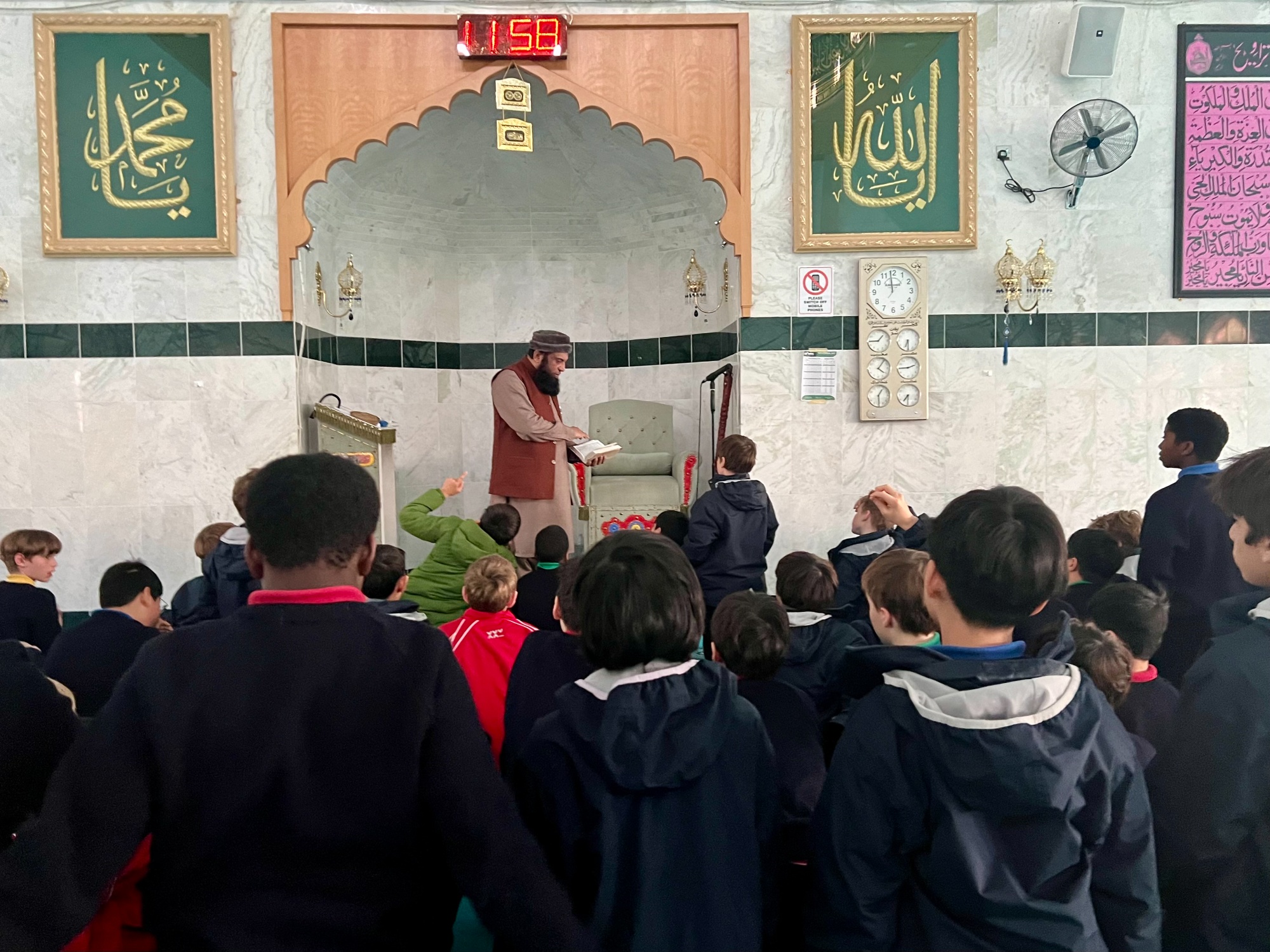Humanities
At Summer Fields, the subjects of Geography, History and Theology, Philosophy and Religion (TPR) are taught under the umbrella of Humanities.
Whilst being taught as three subjects, the aim is for pupils to form connections between them and understand how the subjects relate to one another.
GEOGRAPHY
The aim of the Geography Department at Summer Fields is to stimulate pupils' curiosity about the world while developing their knowledge of places, people, societies and environments.
CHARLIE LANGLEY, HEAD OF GEOGRAPHY

The curriculum covers a wide variety of physical and human geography, including environmental change and the concept of sustainable development.
We encourage our pupils to commit to sustainable development and an appreciation of what 'global citizenship' means.
Pupils will also develop a range of skills through studying geography including enquiry, problem-solving, the use of IT, investigation and how to present their conclusions in the most appropriate way.
The National Curriculum and The Common Entrance Syllabus run very closely together. As a result, all boys will cover Key Stages 1 and 2, and two thirds of Key Stage 3 by the time they leave Summer Fields. With respect to attainment targets, all boys should reach Level 6, with the majority able to achieve Levels 7 or 8. A significant number will reach the Exceptional Performance Level.
Each year-group has a fieldwork exercise to complete, as we believe that learning geography in situ is important. At present, fieldwork is undertaken on-site in the schools' 70 acres of grounds alongside trips to The River Chess, The Cadbury’s Factory and Wytham Woods.
hisTORY
The aim of the History Department at Summer Fields is to inspire pupils with a lifelong passion for the subject and curiosity about the past.
OLIVER BISHOP, HEAD OF HISTORY

History at Summer Fields is the beginning of what we hope is a life-long passion for the subject. Our philosophy is to make it a pleasurable beginning and an introduction to key aspects of British and World History. We also seek to use this fascinating context to develop students’ ability to think in an evaluative, analytical and creative manner.
Pupils study key aspects of British and World History which provides a chronology to support their understanding. We also seek to use this fascinating context to develop students’ ability to interpret evidence and think in an evaluative, analytical and creative manner.
Boys follow a chronological syllabus that covers British history from 1066 to 1914. In Year 5, the focus is on mediaeval history, particularly the Norman conquest. Boys in Year 6 study the Wars of the Roses and the reigns of the Tudor Monarchs, before moving onto the Stuarts in Year 7 with particular focus on the English Civil War. In Year 8 boys aiming to sit scholarship exams will study a more thematic course covering topics such as ‘revolution’ and ‘warfare’, while those taking Common Entrance will focus on the required topics needed for their exam.
All Y5 forms have two History lessons per week. All Y6, Y7 and Y8 forms have three History lessons per week. Boys are taught in streamed forms, so work is matched to their ability.
The department hosts a variety of events, talks and competitions to mark Black History Month in October. The boys also take part in the annual Hannah History essay writing competition, named after Mr Hannah a former Head of History at Summer Fields. Years 4, 5 and 6 compete against peers in their year group, whilst year's 7 and 8 compete to win the Hannah Cup. Nationally, the pupils take part in the Townsend-Warner History Competition, with Summer Field's pupils regularly appearing in the top 30 finalists from thousands of entries from across the country.
History topics are brought to life through a range of different trips. These include visits to the Tower of London, Hampton Court Palace and Portsmouth Historic Dockyard.
Summer Fields also has an on-site archive which contains documents dating from its foundation in 1864 to the current day. Pupils are able to access these original documents and are supported by the school librarian and archivist.
Theology, Philosophy and Religion (TPR)
Theology, Philosophy and Religion at Summer Fields is centred around learning about religion and learning from religion to encourage critical thinking and reflection, which inform the pupils’ wider academic and personal life.
ROSIE WOOLLEY, HEAD OF TRP

Studying religion, whether from their own or another perspective, gives pupils the opportunity to reflect on the major questions and experiences of human life and the answers that different religions offer. In addition, philosophical and ethical studies offer pupils the opportunity to explore the basis of belief and action in the world. During their time at Summer Fields, pupils will study the major world religions, as well as philosophical figures such as Plato, David Hume, JS Mill and Martin Luther King.
By the time our pupils leave Summer Fields, they will be able to use critical thinking skills to explore religious and philosophical concepts, confidently asking questions that explore the unknown, uncertain and undetermined. They will be able to explain the reasons behind religious beliefs and practices, using key terminology accurately. They will use their knowledge of religions and philosophy to infer meaning in new contexts and make suggestions as to the meaning and value of religious beliefs and practices for believers. Studying a range of viewpoints will help pupils develop evaluative skills, as well as empathy for cultures and views that are different from their own.
Summer Fields has an Anglican foundation but welcomes children of all religions, and none. Drawing from many communities, nationally and internationally, pupils from all the world’s major religions are part of the school community. Therefore, pupils have exposure to a wide variety of religious belief and practice during their time at Summer Fields, as well as regular exposure to a lived faith through the school’s chapel.
Studies in TPR are enriched by visits to a local church, synagogue and mosque, as well as Coventry Cathedral a little further afield.